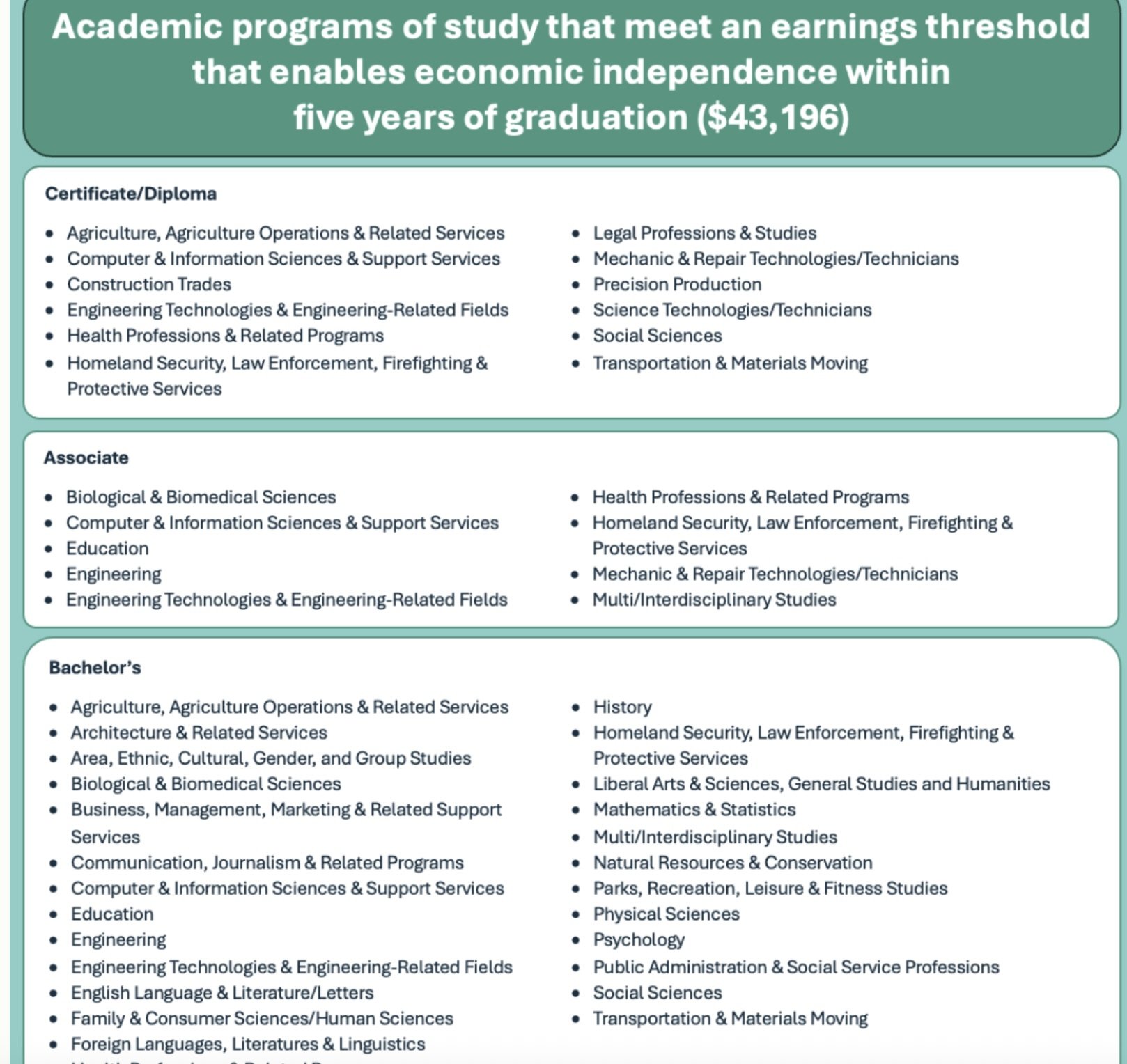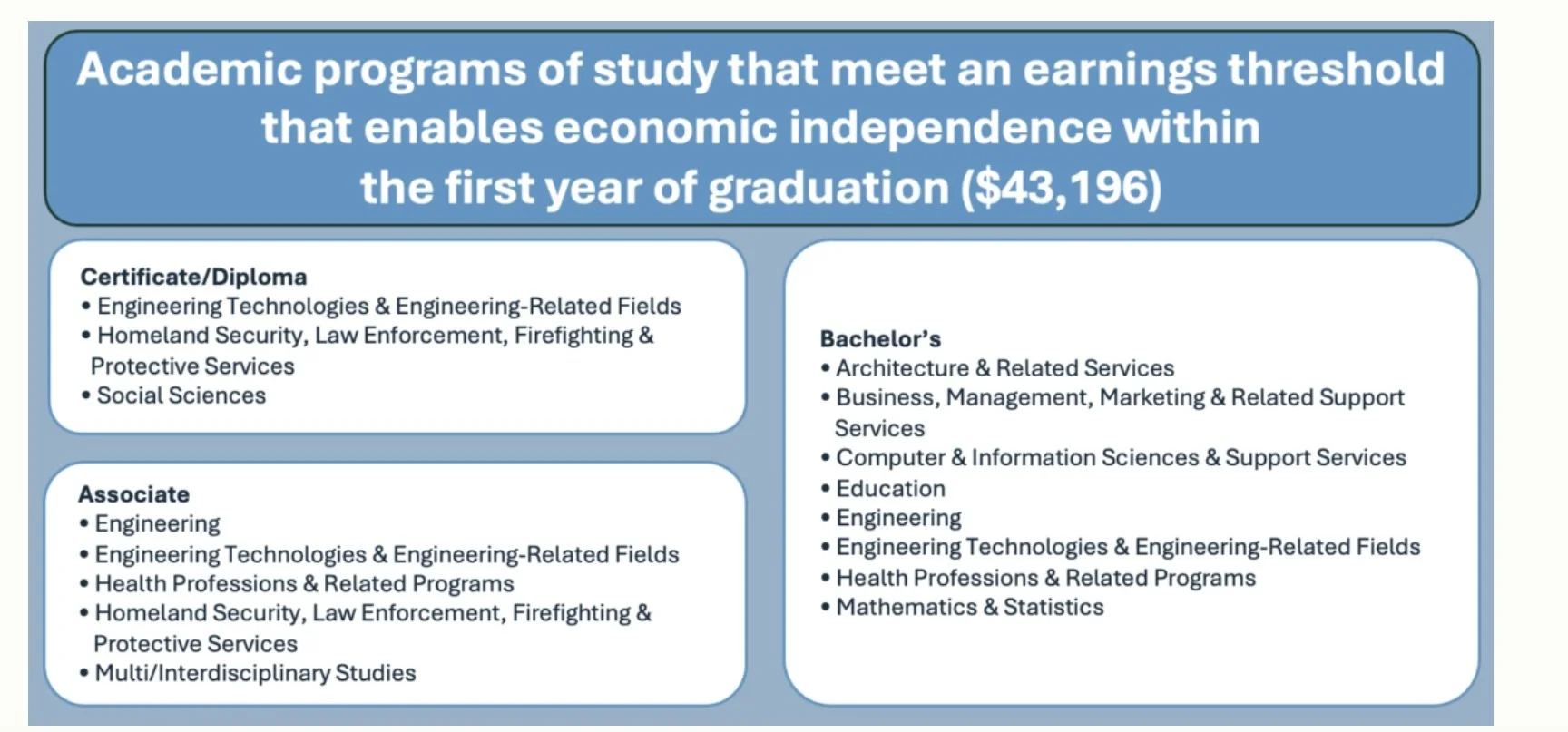Which Tennessee Degrees Pay Off? New Research Highlights Programs Tied to Economic Self-Sufficiency
According to a new SCORE report, fewer than 25 percent of employees with only a HS diploma earn the amount needed to be economically independent in TN within five years of graduating. (Photo: Unsplash)
Last week, Nashville-based education organization Tennessee SCORE outlined which types of Tennessee postsecondary programs lead to employment where earnings are enough to be economically independent. These insights came through analysisdone by Dr. Zachary Hyder, director of research at SCORE, and Yaze Li, special projects graduate fellow at SCORE, of the newly updated state Education-to-Employment Dashboard.
The Road to Economic Independence
According to the new SCORE report, fewer than 25 percent of employees with only a high school diploma earn the $43,196 needed to be economically independent in Tennessee within five years of graduating. By contrast, more than half of those with a postsecondary credential, whether a certificate, associate degree, or bachelor’s degree, each meet that threshold. Still, the data shows that not all programs deliver the same returns.
“Economic and educational opportunities are deeply intertwined,” Hyder said in a LinkedIn post about the research. “When states connect these two historically siloed data systems, we are able to better understand the impact of our systems on students.”
The updated dashboard reveals which academic programs are most likely to connect graduates with livable wages. Out of the program categories tracked, 47 meet or exceed the $43,196 threshold five years after graduation, about 70 percent of those listed. But within those categories, results vary. Some specific fields of study still leave graduates short of economic independence, underscoring the importance of program-level transparency.
Photo Credit: Tennessee SCORE
The Path Forward
Another challenge: most programs take time to pay off. SCORE’s analysis found that 76 percent of programs do not meet the economic independence threshold in the first year after graduation. That lag highlights the need for better alignment between Tennessee’s education system and workforce demand, as well as strong advising to help students choose pathways with the best long-term outcomes.
Photo Credit: Tennessee SCORE
State leaders say linking education and labor data is a critical step. The dashboard is powered by Tennessee’s longitudinal data system, known as TN DATA, which integrates information once siloed across agencies. Recent upgrades, including the Tennessee Department of Labor and Workforce Development’s move to collect employee occupation data, could sharpen insights even further by showing how credentials connect to specific jobs.
Advocates argue that the findings should guide both families and policymakers. For students, the message is clear: the choice of credentials matters, and not all degrees or certificates guarantee financial stability. For the state, the data highlight the need for continued reporting improvements and policies that ensure investments in higher education pay off in the workforce.
“Connecting students with these opportunities transforms the lives of students, families, and Tennessee communities through upward economic mobility,” the report notes.




